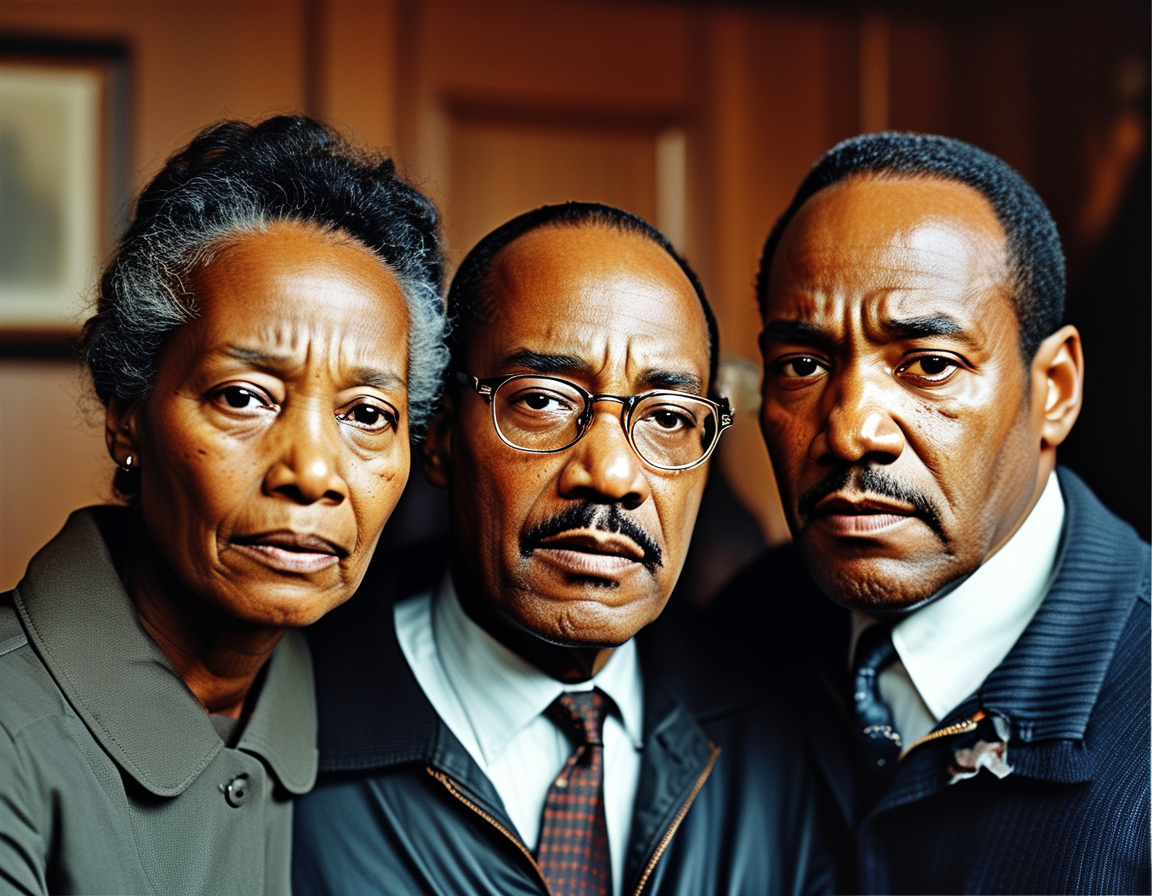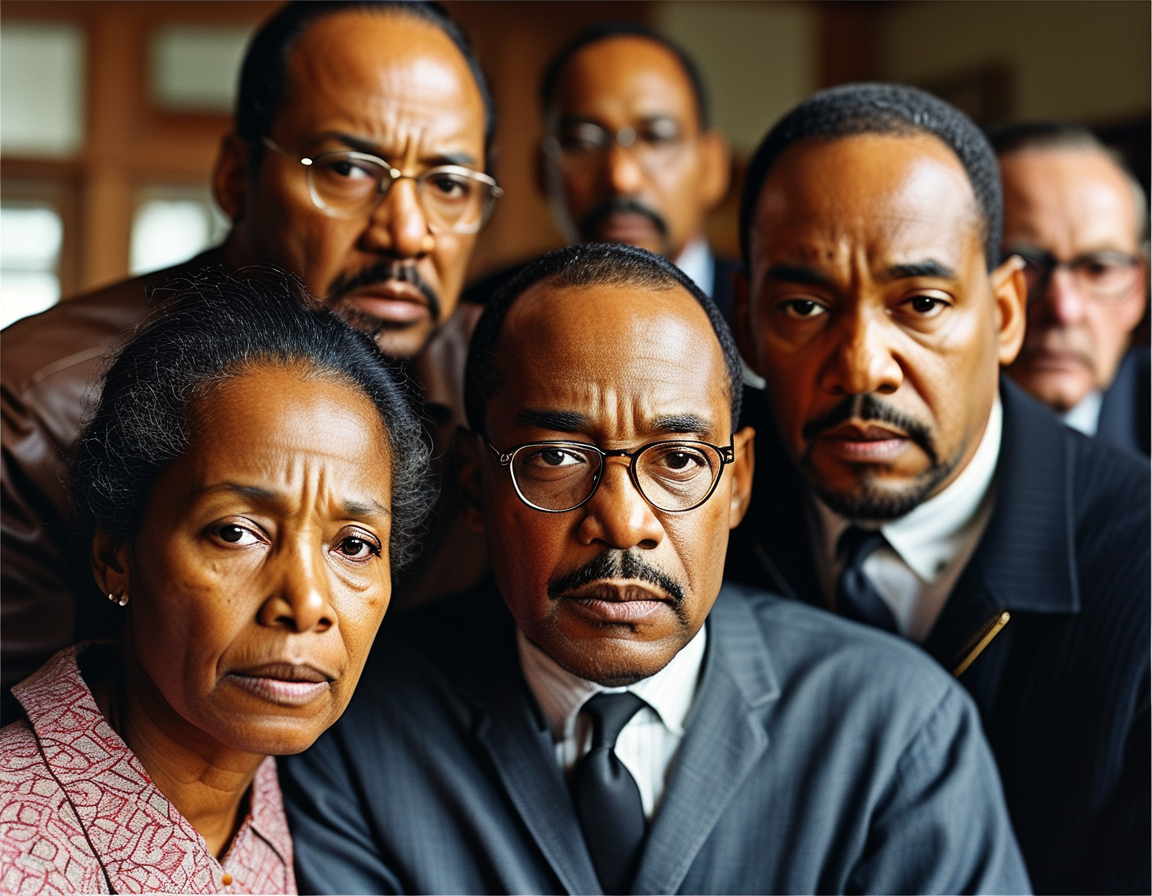In a wave of tension, the emotions are palpable within the King family. Martin Luther King Jr.’s legacy hangs in the balance as they express concerns about Donald Trump’s directive to release sensitive documents related to his assassination. It’s a situation that’s as complex as it is troubling. Can you imagine the weight of knowing that potential smear campaigns on your deceased father could rise again? Conversations within the family are proof that the past refuses to stay in the past.
The family fears a resurgence of J. Edgar Hoover’s tactics. Hoover’s years-long surveillance may resurface. This was not merely a matter of watching; it involved threats and manipulation that could haunt anyone’s legacy. Would anyone wish to put their loved one under such scrutiny even decades later? A representative close to the King family passionately remarks on this oversight, emphasizing the need for dignity and respect for Dr. King’s unparalleled contributions to civil rights.

When Trump signed the executive order for transparency, many expected clarity. Yet, for the King family, it posed a chilling question. Is transparency a mask for ulterior motives? On one hand, Trump insists on revealing the truth to the public. On the other hand, the King family rights alarm bells. They have lived with their father’s tragic loss for over 50 years, a hurt that resonates deeply.
Why did Hoover’s FBI go to such extremes? They not only surveilled Dr. King but dragged his personal life into the public sphere. Hoover’s sends of fabricated evidence—a tape of an alleged affair and a suicide note meant to shatter a man’s spirit—stir deep emotional scars. How could one man wield such power to destroy a legacy? The mere thought sends chills down the spine.
In recent interviews, members of the King family have openly expressed their fears. They sense not just a release of files but a potential assault on their father’s character. A source close to the family states, “They’re terrified this will result in more negative portrayals of Dr. King.” It’s about more than facts; it’s about the narrative shaped around a pivotal figure in American history.

Imagine having someone you deeply respect reduced to a figure of controversy. It brings one to consider the nature of truth in the age of information. The King family simply wants to review those documents. That seems a reasonable request, especially considering the personal history intertwined with these records.
Yet, the Trump administration’s refusal raises eyebrows. It’s hard not to wonder why. Is it negligence? Or is it something more sinister? Clear communication would lend a sense of comfort amidst uncertainty. If the administration genuinely has no animus, why dismiss their request?
Reflections on the past offer insightful lessons for the future. The King legacy isn’t merely historical; it’s a living context that shapes moral and ethical conversations today. The FBI’s actions remind us of the ever-present battle between truth and narrative control. How does society strike a balance between revealing historical truths and protecting legacies?

As the anniversary of Dr. King’s assassination approaches, these discussions amplify the significance of his work. What does this mean for ongoing social justice movements? The King’s family echoes a universal call for understanding and compassion. They want a narrative built on truth, not distortion. The next steps are more than just governmental procedures; they are about honoring a lifetime of advocacy against injustices.
A documentary titled MLK/FBI by Sam Pollard further delves into this matter. It holds a mirror to the ethical failings of surveillance. It sparks an important conversation about how far one must go in the name of ‘national security.’ The film prompts viewers to query: at what cost does such surveillance come?
Among these complex discussions lies an unwavering truth. The story of Martin Luther King Jr. transcends the confines of paperwork and bureaucratic judgment. His life and work shaped a movement that continues today. As we await the release of these documents, let’s consider how we remember those who fought tirelessly for equality. Is it our responsibility to ensure their legacy remains untainted?
In light of recent developments, one must remain vigilant. The King family isn’t merely looking for documents; they’re striving to safeguard their father’s legacy. How can we ensure that truth is not lost in the twisted narrative? As history continues to unfold, let’s remember that every figure in our past deserves respect, dignity, and the chance to be accurately remembered.




